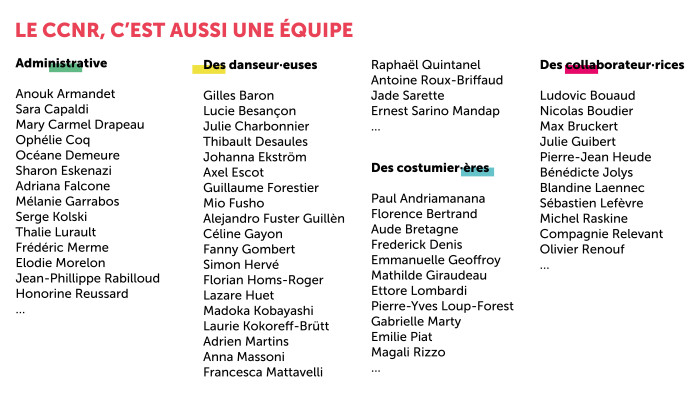The CCNR, directed by Yuval Pick Retrospective 2011 - 2024
The work developed by Yuval Pick and his team at the CCN in Rillieux-la-Pape is underpinned by three main themes and ideas. A city marked by the exceptional plurality of its nationalities. Himself from a foreign country, Yuval Pick sees dance as a possible way of anchoring himself. Dance gives us a sense of belonging and strengthens our place in the world. For Yuval Pick, every movement is a displacement of what is contained in a body: its origins, its traditions, its culture. To make a movement is then to make a displacement and potentially open up to others. Yuval Pick has thus created dance-music projects that highlight the origins of the Rillieux audience, opening up a shared, plural space.
Creations & repertoire
The choreography acts on the dancers as a kind of revelation of their possibilities. - Yuval Pick
Appointed director of the CCNR in August 2011, Yuval Pick already had some fifteen pieces to his credit. These were pieces which, in contrast to unison and straight lines, featured broken lines and asymmetrical figures. Bodies are seen as atoms, chemical particles that collide to form new forms of life. A life that Yuval Pick perceives as profoundly irregular, even anarchic. Dance is linked to life, to the living, to its fundamental elements (masses, rhythms, pulsations...). Dance is an interpretation of the living.
Rétrospective CCNR/Yuval Pick (2011-2024) : créations et répertoire
On his arrival at the CCNR, Yuval Pick made an initial change in his choreographic writing: he focused less on the clash and more on the ‘space between’. Bodies are moving away from each other, and he is questioning the different ways in which we can be together when we are apart. Based on music by David Lang, in No Play Hero, the first piece created at the CCNR, each dancer has his or her own score AND enters into dialogue with the others. The approach is almost political: how can we talk to each other and form a group while each expressing his or her own physical and gestural singularity?
A few months later, Folks added a new facet to his approach. In addition to research into the ‘space between’, in Folks elements from traditional Israeli and European dances were added: the arrangement in a circle, breathing from the centre to the periphery, ternary rhythms, joining hands...
The idea of building a common space out of individual singularities is becoming increasingly important in the choreographer's work, in direct resonance with the particular nature of the town of Rillieux-la-Pape, which is home to no fewer than 73 nationalities. This research is reflected in a range of aesthetic and musical devices in the pieces that follow:
In 2014, Loom, set to music by Nico Muhly, and Ply, set to music by Ashley Fure, offered pared-back, minimalist worlds.
Are friends electric? (2015) plunges viewers into the music of Kraftwerk and a world that is both urban and romantic.
Acta est fabula, in 2018, revives our collective memory through certain musical titles like hymns...
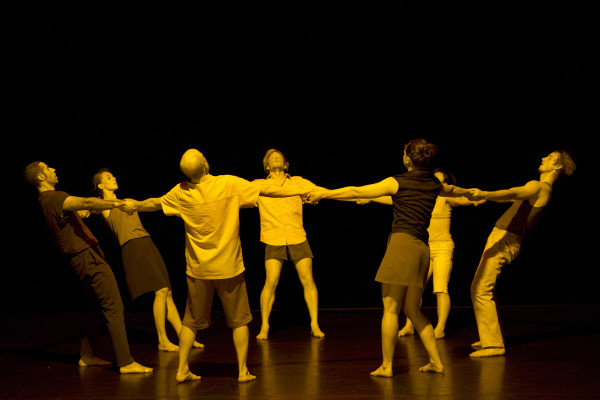
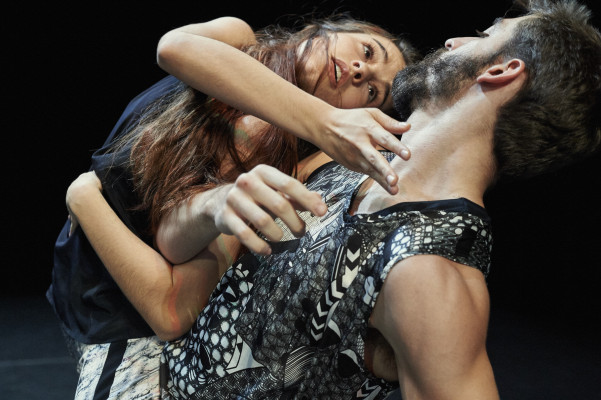


In parallel with his creations, Yuval Pick has developed a method, called Practice, which is initially intended as a means of transmitting movements to dancers.
‘Considering that dancers are subjects and not ‘objects’, I invented a method in which they nourish the gestures transmitted and interpret the movements I give them themselves’.
When Practice was born, the creative process was based above all on repetition and exhaustion. Gradually, thanks in particular to the music of Bach (used from 2020 for Vocabulary of need and until Into the silence in 2024), the body became orchestral, the movement more fluid, approaching currents of air or water...
Practice has gone from being a warm-up and transmission method to a creative method.
The relationship with the music has also evolved since Yuval Pick's first works: it is no longer simply an element on which the dance is based or which it envelops, but is itself a material in movement (in concrete terms, certain technical devices help to achieve this: broadcasting to different points on the stage, loudspeakers moved by the dancers). There is a certain balance of power between the dancers' presence-movement and that of the music.
Dancer training
In line with its remit, the CCNR regularly offers open classes required for Regular Dancer Training (ERD), workshops, courses and masterclasses based on the artistic approach of guest choreographers or Yuval Pick's method, ® Practice.
Over the last twenty years, the choreographer and director of the CCNR has developed a method that nourishes his dance and his pieces. It has become the daily practice of the dancers in his company, enriching virtuosity, expressivity and stage presence. The fundamentals of this method lie in the notions of rotation, ‘space-in-between’, weight transfer, the quality of rebound on the floor, the orchestral body that brings together the upper and lower parts of the body... The Practice method is now taught in schools and dance companies in France and abroad.
The PRACTICE method
‘Practice gives access to an ‘inner spiral’ that creates asymmetrical situations and puts the body in a state of imbalance. It's a confrontation with the unexpected that we practice here with joy, daring and enthusiasm.’ - Yuval Pick
Practice takes you off the beaten track of dance, to rediscover the organic, intimate depth of each movement. It invites everyone to (re)discover their own unique bodily identity, and a freer relationship with space and with others. With Practice, it's no longer just a question of a trajectory to follow, a posture to hold, or a technical gesture to execute (in a certain ‘oblivion of self’), but of setting the internal as well as the external in motion, and of intentional actions, marked by subjectivity. I'm not performing a dance or a movement, but by dancing I'm involving myself and creating new relationships between inside and outside, and within my own bodily ‘inside’. The action takes place both inside and outside me, and in between.
More information on the Practice website: https://practiceyuvalpick.com/practice/methode-et-philosophie/
In autumn 2021, Yuval Pick is launching YuPi, the young company of the CCNR/Yuval Pick, to support the professionalisation of dancers. In practical terms, YuPi is offering fresh college graduates the chance to join the CCNR's artistic team on a long-term contract lasting twelve to fifteen months. From October 2021 to December 2022, Axel Escot, Mio Fusho, Jade Sarette and Simon Hervé, who made up the first YuPi class, participated fully in the artistic and cultural life of the CCNR. The four artists opened up to the ® Practice method, embodied Yuval Pick's repertoire and worked on new creations. Finally, they have been involved in ambitious outreach projects with a variety of audiences.
In October 2023, the CCNR welcomed three new dancers, forming the second class of YuPi: Lucie Besançon, Johanna Ekström, Florian Homs-Roger, Laurie Kokoreff-Brütt and Raphaël Quintanel.
Témoignages YuPi, la jeune compagnie
YuPi, the CCNR's young company, is part of the Parcours Emploi Compétences scheme and receives support from the Fondation pour la danse, sponsored by the Fondation de France, and the Ministry of Culture (DRAC Auvergne Rhône-Alpes and DGCA).
® Practice - Yuval Pick is a registered trademark with the INPI.
Support for artists
As a creation and support centre, one of the CCNR's main missions is to support choreographic companies by making resources and spaces available. This policy implies a selection process guided by the demands of movement languages and the diversity of writing. The Accueil-studio scheme consists of selecting six to eight companies each year, who are both welcomed at the CCNR for a period of residency and financially supported with the payment of a co-production to carry out their creative project.
As part of the Accueil-studio programme, CCNR director Yuval Pick has set up Matières Premières, a programme dedicated to young creators who have written a maximum of two or three projects. Since its creation in 2011, the CCNR team has given priority to companies from the Auvergne Rhône-Alpes region, offering them long residencies and research periods.
Soutien aux artistes
The vast majority of the companies supported under the Accueil-studio scheme, particularly the most emerging ones, subsequently found it difficult to present their work. In response to this problem, Yuval Pick and his team have created a unique opportunity for visibility in collaboration with the Lyon Dance Biennial. Created in 2018, La Plateforme has brought together over 400 programmers from all over the world for each edition. The companies presented by the CCNR were thus able to benefit from exceptional visibility to develop their work. The CCNR has also made a point of showcasing emerging and regional companies in its home town of Rillieux-la-Pape at events open to all.
The CREATIVE evenings, like the Festival Cocotte, have welcomed Amala Dianor, Fouad Boussouf, Emeline Nguyen, Filipe Lourenço, Joy Alpuerto Ritter, Compagnie Relevant...
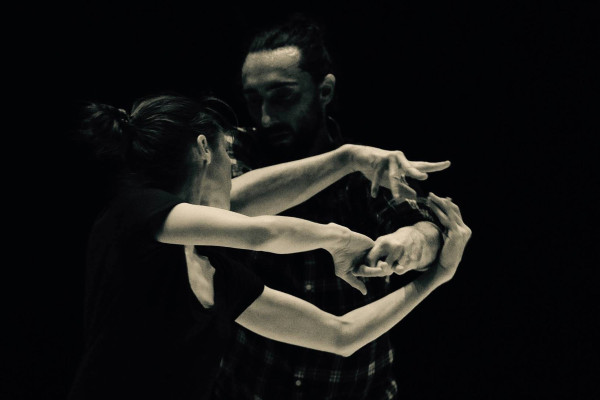
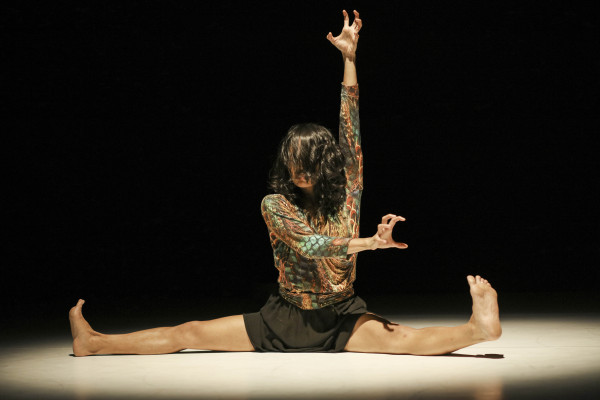

From 2022 to 2024, the CCNR supported the Compagnie Relevant as part of the Artiste Associé scheme. These five choreographers, all from the Lyon metropolitan area, were selected for the quality of their choreographic writing, combining hip-hop and contemporary influences, as well as for their human qualities and their ability to get involved with the public in Rillieux-la-Pape. This support has been particularly comprehensive, including assistance with the production of their new work, local dissemination of their work and participation in outreach initiatives. In addition, Yuval Pick and his team have been keen to support them in structuring their company and growing their professional network.
Upshot - Compagnie Relevant
Cultural action programmes
Since 2011, mediation activities have played a key role at the CCNR, becoming a powerful lever for inclusion, dialogue and social transformation. They act as bridges, connecting people and democratising access to culture, as well as encouraging self-expression and understanding of others.
Amateur testimonials
Based on Yuval Pick's artistic approach, the CCNR has given different audiences - children, teenagers, adults, residents of Rillieux-la-Pape and dance enthusiasts from all over France - sensitive experiences that question our relationship with the collective. During practice sessions, everyone was able to experiment, share and experience the creative process.
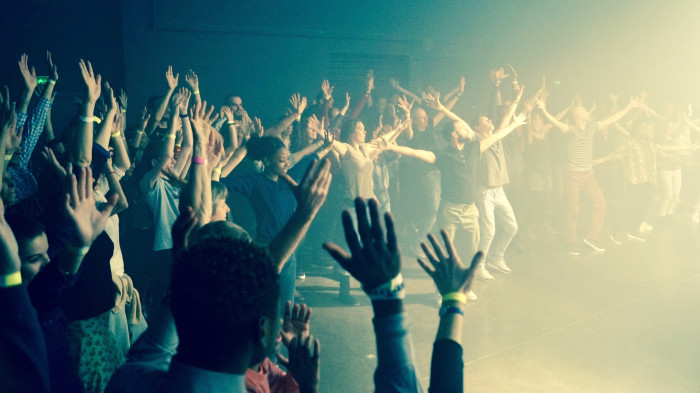
For thirteen years, the CCNR's cultural action projects have been the result of encounters and exchanges. A subtle but powerful force, cultural action has taken several forms:
Introduction to a new language through educational and school programmes
The art of dance in higher education
Setting up large-scale participatory projects
Developing partnerships with care and integration organisations in Rillieux-la-Pape
The discovery and transmission of Practice, Yuval Pick's method
Training trainers
Experimenting with creative movement, taking risks, daring, opening your eyes, training your critical mind, feeling, inventing, imagining, building together... These are the values defended and promoted by the CCNR for thirteen years.
Discover some of the key projects carried out with the public and in the region between 2011 and 2024.
Dîtes Rillieux
In 2016, the CCNR invited the residents of Rillieux-la-Pape to take part in a creative project inspired by the sounds and music of their town. Dîtes Rillieux brought together nineteen amateur dancers over a five-month period. Guided by dancer and choreographer Émilie Szikora (Collectif ÈS), the group explored traditional ensemble dances. The project culminated in three public performances at the CCNR.
Dîtes Rillieux -
Flowers crack concrete
As part of the Passerelles project, young French, Israeli and Palestinian dancers from the DSF and Gsharim/Jusour groups got together to create a choreographic work under the direction of Yuval Pick. In 2018, the piece that emerged from the project, Flowers crack concrete, was presented in Haifa, Israel, and then in Lyon as part of the Lyon Dance Biennial and the European Heritage Days. Since then, Flowers crack concrete has become a fully-fledged participatory project, shared with other groups of all ages and backgrounds, whether or not they practise dance.
Write your haka
In autumn 2023, the Écris ton haka project brought together rugby players and dancers to create their own haka. Inspired by Yuval Pick's Acta est fabula, which recounts Maori songs and rituals performed before matches, the project gave rise to a festive and sporting choreography celebrating union.

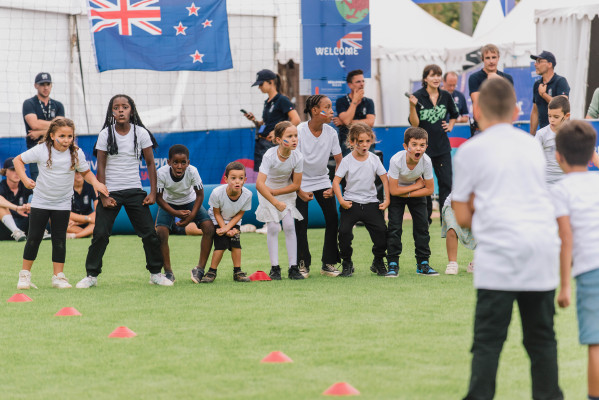
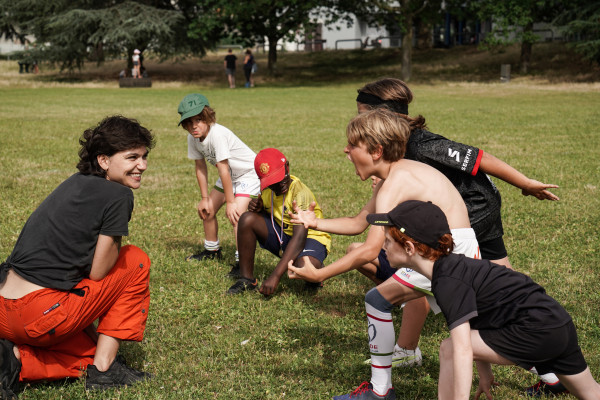
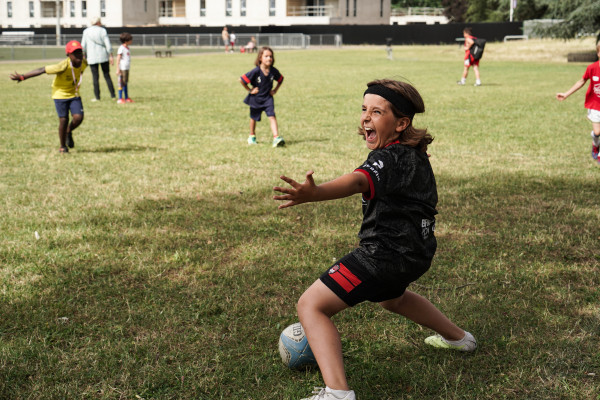
The CCNR Ball
From 2015 to 2022, the CCNR invited young and old alike to celebrate dance at festive and original choreographic balls! The last edition of the Ball, called ‘bonbon pour le moral’ and created by Thibault Desaules, took place at the end of 2022 at the MJC Ô Totem in Rillieux-la-Pape in a festive and sensitive atmosphere where everyone was able to dance in total freedom alongside dancers from the CCNR.

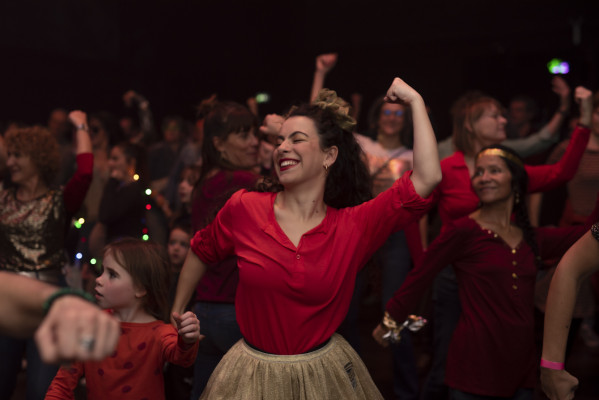
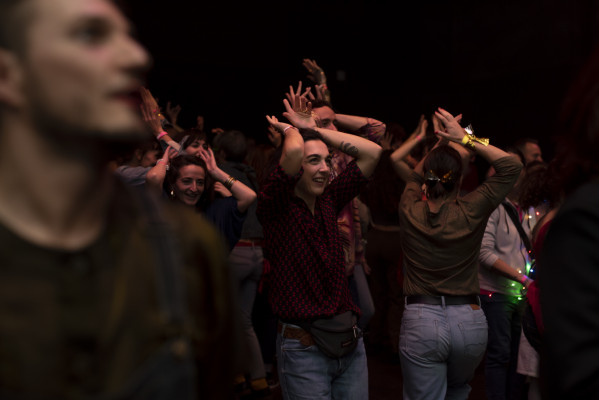
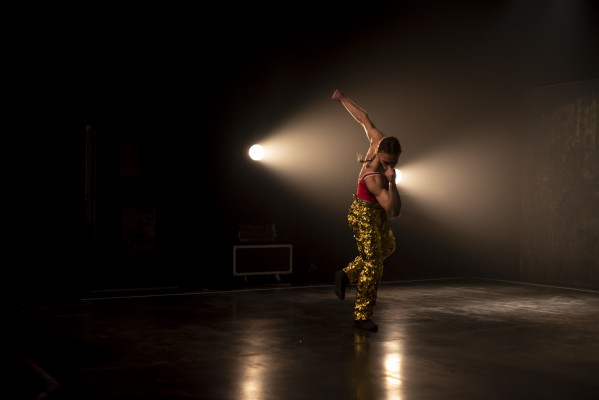
Feel the Fibre
Since 2011, the NCCR has been offering weekly dance workshops for amateur dancers. Called Sentir la FIbre, they are led in turn by a dancer from the CCNR company or an artist in residence. Participants will be surprised to discover the choreographic universe of the week's guest dancer.
With arms around the body
During a dedicated week in November 2024, Compagnie Relevant drew inspiration from its creation STAND OUT to offer pupils at Maria Casarès secondary school in Rillieux-la-Pape a physical experience based on the theme of harassment. The schoolchildren explored the sensitive concepts of integration and exclusion during choreographic workshops.
My dance class
For a week in March 2022, dancers from the CCNR visited the Velette school in Rillieux-la-Pape. They invited the pupils to experiment with collective situations in the form of games exploring and writing movement with their bodies. To bring the project to a close, 280 pupils from CP to CM2 danced together at a large-scale choreographic ball organised within the school itself.
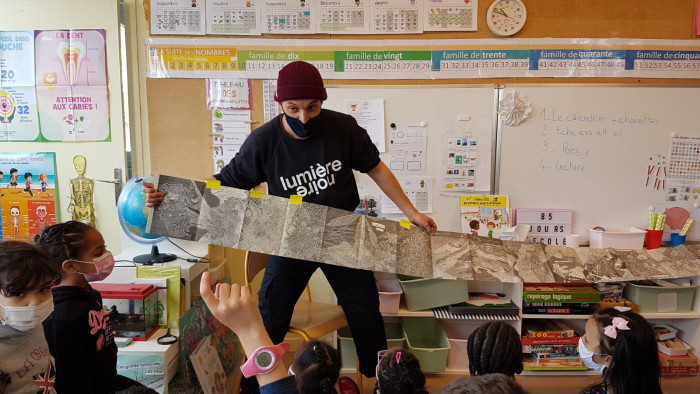
Multiples
Multiples, the CCNR's magazine
A manifesto magazine launched in 2021, at a time marked by the Covid-19 pandemic and the closure of cultural venues, Multiples compiles reflections, interviews, personal accounts and extracts from scientific articles on dance and, beyond that, on creativity. In each issue, a singular photographic project, carried out with author-photographer Sébastien Erôme, punctuates the writings.
‘What I really like about working with Yuval Pick is the immense photographic freedom he gives me. This freedom has of course been built up over the years. It evolves on a ridge with, on the one hand, my photographic intentions, what I see, and on the other, what Yuval is looking for and expressing through the writing of movement.’ - Sébastien Erôme

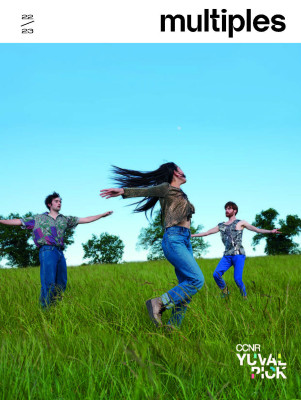
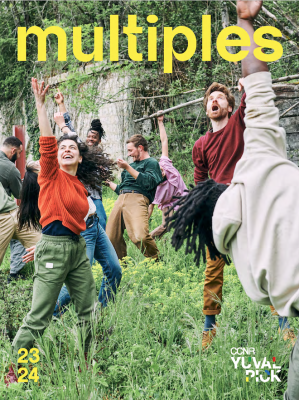
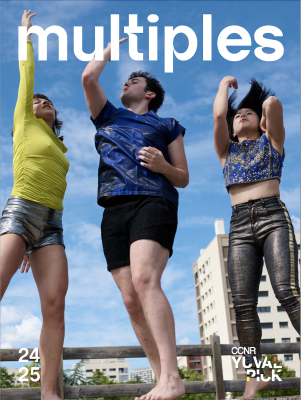
Flip through the four editions of Multiples :

